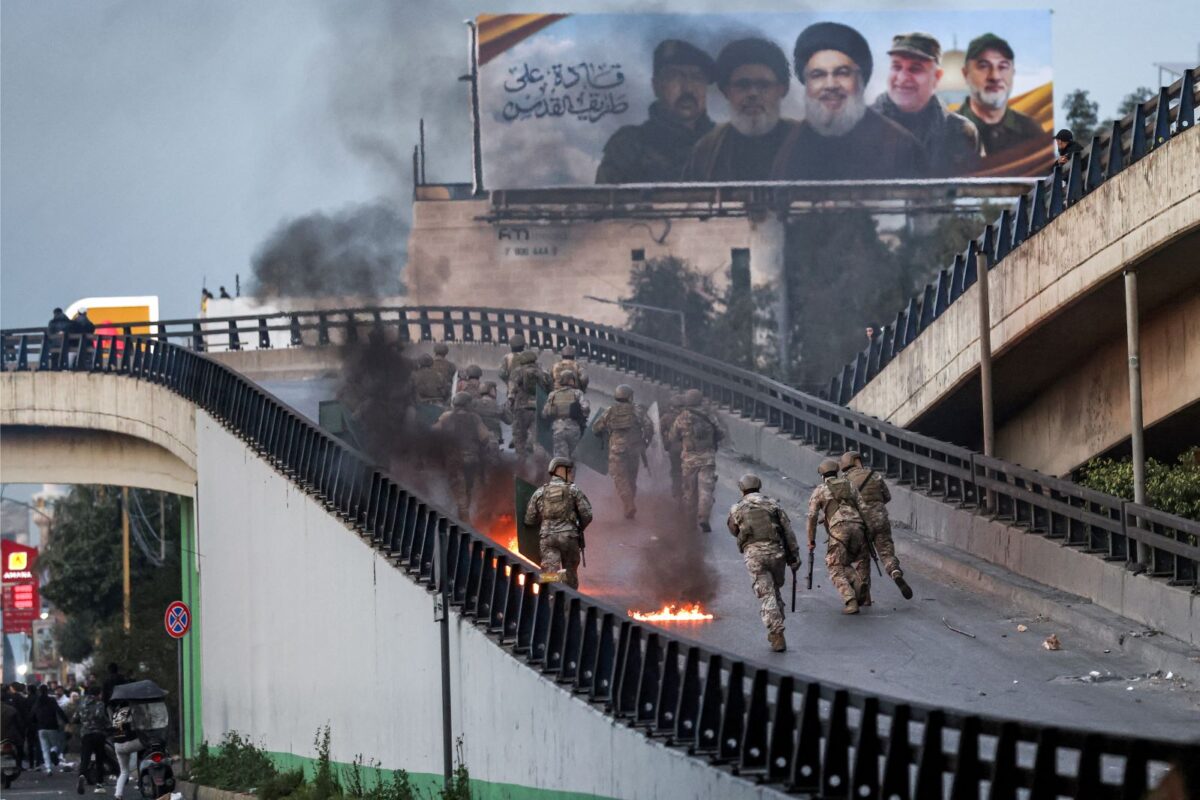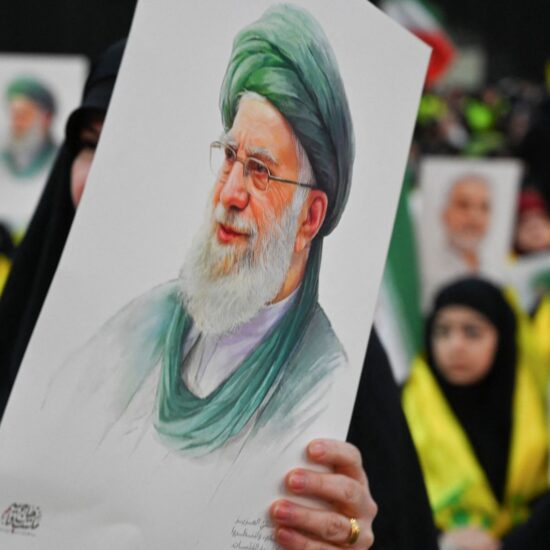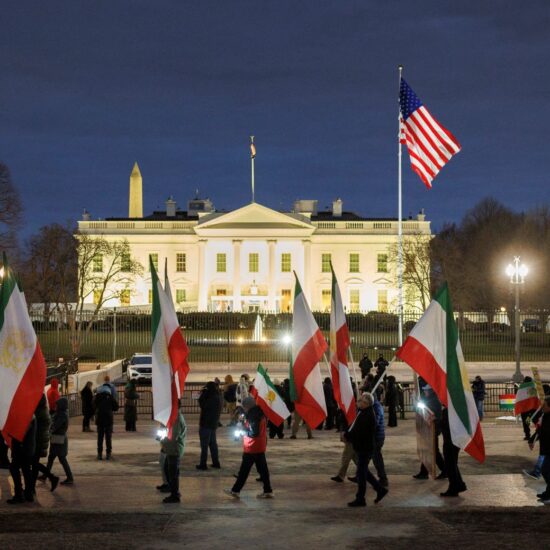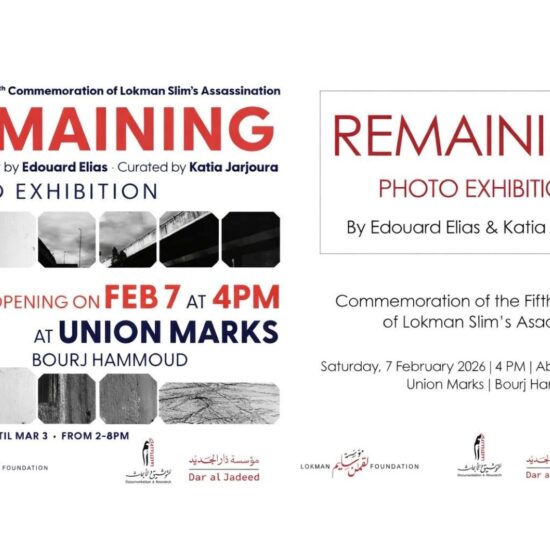
A dual strategy of overt demonstrations and covert financial maneuvers
Shouting “Shiaa Shiaa” gangs blocked the airport road on two occasions last week in a protest to Lebanon denying permission for Iranian flights to land in Beirut twice. Reportedly the United States warned Israel might shoot the planes down, a Lebanese security source quoted by AFP. Israel has on several occasions accused Hezbollah of using the airport in Beirut to bring in weapons and cash money from Iran. The group — and Lebanese leaders — have denied those allegations
Hezbollah’s recent protests on Airport Road, sparked by the decision to prevent an Iranian flight from landing at Beirut’s Rafic Hariri International Airport, appear to be a strategic move to secure the flow of capital and fresh funds to the organization. The Lebanese government’s decision, influenced by U.S. warnings and Israeli concerns over potential smuggling of funds for Hezbollah, has put significant pressure on the group. Hezbollah’s demonstrations are not just a show of dissent but a calculated effort to maintain their financial lifelines and assert their influence amidst dwindling monetary reserves. By rallying their supporters and creating a spectacle, Hezbollah aims to send a strong message to both their adversaries and potential benefactors, emphasizing their resilience and capability to mobilize resources despite external pressures.
“The security of Beirut airport takes precedence over any other consideration,” Prime Minister Nawaf Salam was quoted as saying.” And the safety of travelers as well as the safety of Lebanese citizens are elements on which we will not compromise” he added.
Last September Lebanon’s Transport Minister, Hezbollah’s Ali Hamieh denied permission for an Iranian flight to land in Beirut planes after Israeli warnings. There were not issues with his decision. Hezbollah even claimed Hamieh saved the airport and the security of Beirut airport takes precedence over any other consideration. Hezbollah’s recent over the top reaction is an attempt to circumvent the surrender deal they agreed to, show their blind loyalty to Iran and try to bully President Joseph Aoun and PM Nawaf Salam. Seemingly Hezbollah monetary reserves are draining and the need to find monetary resources is pressing, a source told NOWLEBANON. Hezbollah has been exerting pressure on President Joseph Aoun and Prime Minister Nawaf Salam, especially during the formation of the new government. The U.S. has been clear that Hezbollah should not be part of Lebanon’s government, but the group continues to push for influence.
The new Lebanese government, described as a “government of reform and rescue,” aims to exclude political party members and focus on competence and expertise. However, Hezbollah and its allies are trying to pre-approve Shiite ministers, causing political deadlock. What is making the issue more complicated is the need to pay indemnities to residents of the South following a long destructive war and the confusion surrounding the stakes at AlQard Al Hassan – Arabic for “benevolent lending”. According to a recent World Bank report, the cost of physical damages and economic losses due to the conflict is estimated at $8.5 billion. Here’s a breakdown of the losses: The conflict has also resulted in over 875,000 internally displaced persons in Lebanon, with housing being the hardest-hit sector, amounting to $3.2 billion in damages and losses. Additionally, the conflict has cut Lebanon’s real GDP growth by at least 6.6% in 2024. Reportedly indemnities from Hezbollah should cover approximately 5,027 buildings across Lebanon which have shown significant damage due to the latest conflict. The assessment comes from b UN-Habitat and other organizations, assessment utilized satellite imagery to analyze the extent of the damage, focusing on areas in the South and Nabatiyeh governorates. Additionally, it’s estimated that 8,000 buildings lie within a 10 km radius of the southern border, which has been particularly impacted.
Sanctions made finance worse
Hezbollah’s financial situation has become increasingly precarious, making their need for every penny more urgent than ever. The organization’s monetary reserves have been steadily depleting due to various factors, including economic sanctions, reduced funding from external allies, and the costly military engagements they’ve been involved in.
The recent demonstrations on Airport Road are not just a display of political strength but also a calculated effort to reaffirm their financial prowess. By mobilizing their supporters and creating a show of force, Hezbollah aims to project an image of resilience and capability. This spectacle serves multiple purposes: it intimidates political opponents, reassures their base of their continued strength, and signals to potential benefactors that they remain a formidable entity worthy of investment.
Moreover, Hezbollah’s involvement in the underground finance network and other illicit cash economies has been a critical component of their financial strategy. Hezbollah’s financial operations, often referred to as “kabala finance,” involve a complex network of illicit activities and money laundering schemes. These activities are designed to generate significant funds to support the group’s operations and maintain its influence in Lebanon and beyond. These underground economies provide a steady flow of funds, essential for maintaining their operations and influence in Lebanon. The need to secure these financial lifelines is becoming more pressing as traditional sources of funding become less reliable.
This dual strategy of overt political demonstrations and covert financial maneuvers highlights Hezbollah’s adaptability and determination to maintain their position. However, it also underscores their vulnerabilities and the lengths they are willing to go to secure their financial future. The current economic pressure is forcing Hezbollah to reveal their reliance on these illicit activities, which could have long-term implications for their legitimacy and stability.
The U.S. Treasury Department has imposed sanctions on AQAH. These sanctions are part of broader efforts to target Hezbollah’s financial network and disrupt its funding sources. Reportedly; AQAH has been used by Hezbollah to manage its financial activities and gain access to the international financial system. The sanctions aim to hold accountable those who exploit their positions for personal gain and support Hezbollah’s destabilizing activities. In coordination with the U.S., Qatar has imposed sanctions on several alleged Hezbollah financiers based in the Gulf region. These measures aim to disrupt Hezbollah’s financial networks and prevent the flow of funds to the group. The EU has designated Hezbollah’s military wing as a terrorist organization and imposed sanctions on individuals and entities associated with the group. The UK has also imposed sanctions on Hezbollah, targeting its financial networks and key individuals involved in supporting the group.
The organization, which is registered as a charitable association, follows the principles of Islamic finance, lending out money without charging interest. Considered to be Hezbollah’s economic arm, the organization has been targeted by US sanctions for years – and, lately, by Israeli air strikes.
Show de force
The incident of last week was also a show de force against a passing by UNIFIL convoy. Once again it was a déjà vu scenario as the Lebanese Army has already clashed with Hezbollah demonstrators. On October 7, 2000 Hezbollah supporters protested against the Israeli occupation of southern Lebanon. Following the 2006 war Lebanon War, Hezbollah organized protests against the presence of UNIFIL forces. During the Lebanese protests of 2019 against government corruption and economic crisis, Hezbollah supporters also took to the streets.
The move of last week is bold as it seems that Hezbollah leadership is not accepting a new status quo in Lebanon. The truth, in its rawest form, was this time spoken by former Progressive Socialist Party (PSP) leader Walid Joumblatt, and it seems that only Hezbollah refuses to hear it. “The previous equation in Lebanon has changed … The presence of armed militias is now a thing of the past, he said.” “The resistance is here to stay,” one of the party deputies reiterated on Sunday
Top U.S. diplomat Marco Rubio said on Sunday that the United States and Israel expect the Lebanese state to work towards disarming Iran-backed Hezbollah, which fought a war with Israel last year. “In the case of Lebanon, our goals are aligned in the same. A strong Lebanese state that can take on and disarm Hezbollah,” Rubio said in a joint address to reporters with Israeli Prime Minister Benjamin Netanyahu in Jerusalem.
Kabala finance in play
A fragile ceasefire has been in place in Lebanon since November 27, after more than a year of hostilities and two of months of open war between Israel and Hezbollah there. The Israeli military targeted several branches of Islamic finance institution Al-Qard al-Hassan, ( AQAH ) which it accuses of funding Hezbollah’s activities in Lebanon. For 40 years, the organization has specialized in microcredit, a sector that has grown significantly since the collapse of Lebanon’s financial system in 2019.
It is believed that AQAH controls more than 80 percent of the cash economy a source familiar with the topic told NOWLEBANON
Hezbollah spokesman Mohammed Afif told reporters that Al-Qard al-Hassan was “a completely civilian institution registered by law, whose services are for all Lebanese without exception”. What Afif did not say it is a fact that the organization is an NGO and not registered in BDL accounts.
The World Bank estimates the size of Lebanon’s cash economy at $6.05 billion in 2021, the equivalent of 26.2% of nominal GDP, and $9.86 billion in 2022 representing 45.7% of GDP. The report noted that the larger size of the cash economy in 2022 can be mostly attributed to the “slowdown” in capital flight to nearly 0 in 2022 in part due to tighter informal capital control measures. In addition, the size of the cash economy relative to GDP is significantly larger in 2022 as a result of the drop in nominal GDP from $23.13 billion in 2021 to $21.55 billion in 2022. From another perspective, the World Bank stated that the adoption of cash transactions largely increases the risk of money laundering and creates additional tax evasion opportunities. The report warned that increasing the reliance on cash transactions jeopardizes the progress Lebanon made towards improving the country’s financial integrity by instituting strong anti-money laundering controls in the banking sector prior to the current crisis. In addition, the report noted that cash economies facilitate the concealment of the sources of funds used in illicit and illegal activities. Finally, the World Bank commented that cash economies encourage informality by small & micro businesses and lower productivity due to the absence of economies of scale which will likely cumulate the weaknesses in Lebanon’s tax code.
Created in 1983, AQAH offers microloans averaging $2,500 to thousands of clients against everyday collateral such as gold or jewelry. ‘We grant interest-free microloans of up to $5,000 to meet a variety of needs, such as marriage, financing a project or personal needs’, Executive Director Adel Mansour explained in 2020 in the Le Commerce du Levant business monthly.
Unlike traditional banks, AQAH doesn’t charge interest, in accordance with the principles of Islamic finance that condemn lending at interest as usury. And though Iran played a hand in its creation in the 1980s, the institution has since become self-financed, largely through Lebanon’s Shiite community.
Al-Qard al-Hassan is licensed under Lebanon’s interior ministry as a charitable organization rather than a commercial bank. Despite this, it has in recent years taken on an important role in the country’s economic life, mainly within Lebanon’s Shiite community. It counted 486,000 contributors and members as of 2019, and said it had been responsible for two million loans totaling $4.3 billion since its creation in 1983.
In the beginning, AQAH proposed zero-interest loans allowing borrowers to launch small economic activities such as paying for training or buying sewing machines. The idea was to give families a second source of household revenue.
As Lebanon’s banks adopted capital controls and people could no longer withdraw their money, the economy became a lot more ‘cash-based’, favoring Hezbollah, which is active in many illicit and informal economic networks. But when you go deposit your gold with AQAH, you can get cash right away.
A web of partners
Due to U.S. restrictions, Hezbollah was prevented from operating its own banks. As a workaround, the group established a network of Shia-run foreign exchange offices affiliated with Hezbollah or the Amal Party. This network became Lebanon’s largest, albeit with only a few institutions licensed by the central bank. These affiliates dealt exclusively in cash, consistent with Hezbollah’s shadow economy practices.
When OMT and BoB Finance couldn’t meet the dollar demands set by the central bank, they resorted to the black market and foreign exchange houses to bridge the gap. They conducted their transactions via WhatsApp groups, with agents delivering the dollars in person. As Lebanon’s default led to widespread unbanking, this cash-based business flourished. Meanwhile, OMT continued to open numerous unlicensed and unvetted branches, as revealed by central bank leaks. These activities were enabled by bribes to central bank officials, who overlooked improper licensing practices.
In 2021, the hacking group SpiderZ infiltrated AQAH’s servers, revealing that the firm provided loans to both member-borrowers and unsecured applicants in exchange for gold deposits or other guarantees. “Lebanon is governed today by mafias, militias and money,” the hackers said. “Al-Qard al-Hassan is not a charitable association, it’s Hezbollah’s bank, outside of Lebanon’s official financial system, they added”
By December 2019, AQAH had a loan balance of Usd450 million, which was growing at a rate of 13.4% annually. In 2019, AQAH issued Usd475 million in loans to around 20,000 borrowers. The firm also offered deposit accounts to 307,000 members, 83,000 contributors, and 600 companies, with Usd1.5 billion in customer deposits reported in 2019. These deposits were largely backed by under appraised gold.
Additionally, AQAH issued various types of loans backed by gold, U.S. dollar deposits, and members’ deposits. By 2020-2021, the firm claimed to have issued 212,000 loans worth $553 million. AQAH’s promotions suggested a total of $4 billion in loans had been disbursed, expanding its reach beyond its typical zones.
The hacked documents also exposed Iranian account holders, including sanctioned entities and individuals linked to Hezbollah. AQAH had correspondent accounts with Iran’s Bank Saderat-Lebanon branch. Concerns were raised about the lack of oversight and compliance with anti-money laundering regulations, leading to an investigation by attorneys Majd Harb and Elie Kirlos in 2021. However, charges against AQAH were neither investigated nor prosecuted.
Saving Kabala finance?
Hezbollah’s recent actions and demonstrations underscore the challenges the group faces in maintaining its financial stability and influence in Lebanon. The economic pressures and sanctions, particularly those targeting their financial networks like Al-Qard al-Hassan, have strained their resources. As they continue to navigate these obstacles, one must ask: what options does Hezbollah have moving forward? Will they adapt their strategies to secure new funding sources, intensify their political maneuvers, or seek to reassert their influence through other means? The road ahead for Hezbollah is fraught with challenges, and their next moves will be critical in shaping Lebanon’s political and economic landscape.
Moreover, Hezbollah has lost the broad political consensus on resistance that once bolstered their position. Their recent moves suggest a shift towards alternative strategies to reinforce their stance. Given the mounting pressures, a pertinent question arises: will Hezbollah eventually be forced to relinquish its grip on power, or will it find new ways to maintain its influence in Lebanon? The coming months will be crucial in determining their trajectory and the future of Lebanon’s political dynamics, and most of all …. The future of Kabala Finance
Maan Barazy is an economist and founder and president of the National Council of Entrepreneurship and Innovation. He tweets @maanbarazy
The views in this story reflect those of the author alone and do not necessarily reflect the beliefs of NOW








